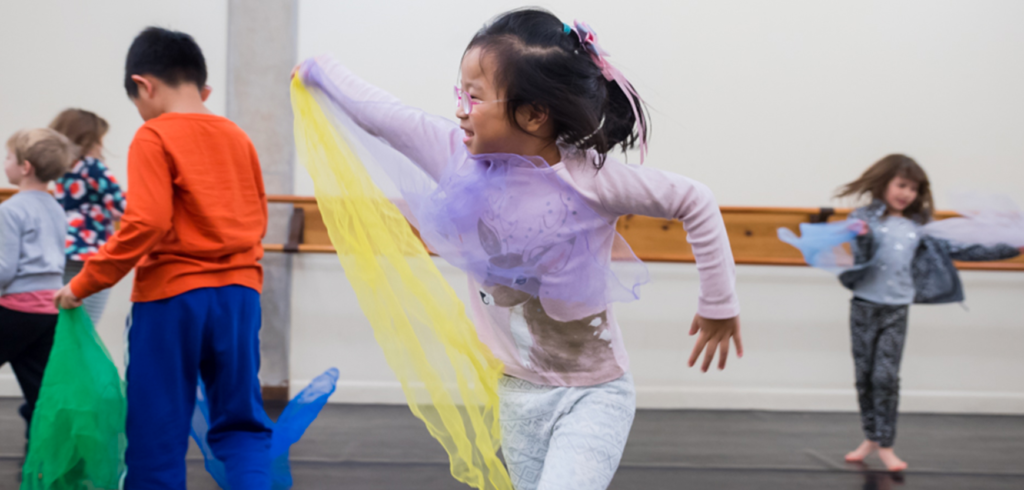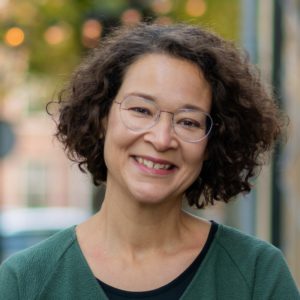
Surprising Discoveries about Children and Race
As a music educator, you know how important it is to engage children in music at an early age. Babies, toddlers, and preschoolers all respond with glee to inviting rhythms, melodies, and harmonies. They bounce, tap, sing, and swing their way into absorbing the language of music. A young child’s whole body and being is like a sponge soaking up all the musical sounds heard in their environment. As children grow, they bring these early experiences into their later years, forming their musical sensibilities and perceptions.
Children also absorb messages about race. Racial messaging is everywhere, and children are naturally curious about racial differences. They are eager to see patterns and make sense of their environment. Observations, informed by messages from their home, school, community and cultural life, become understandings and develop into concrete beliefs.
At what age do you think children notice racial differences?
At what age do you think children’s ideas about race solidify?
The answers to these questions may surprise you. They surprised me.

How to Talk with Children About Race
On February 3rd, 2024, Isabel Cruz, Amsterdam-based early childhood educator and diversity and inclusion consultant, offered an online workshop, How to Talk with Children About Race, sponsored by the Dalcroze Society of America’s Diversity, Equity, and Inclusion (DEI) committee. Cruz guided participants in a 90-minute session that sparked conversation and led me to unexpected realizations about young children and race.
Talking about race can stir feelings. Although I’ve been involved in DEI work for several years, a ripple of nervousness ran through me as the workshop began. What might be asked of me? Will the process make me feel exposed or embarrassed in some way? Unsure of what to expect from the online event, these thoughts arose unbidden. As the workshop unfolded, however, I appreciated Cruz’s welcoming manner. Isabel set the stage for a supportive and meaningful experience by laying out the following community agreements:
- Be curious and open-minded
- Lean into discomfort – it’s how we grow!
- Together we know a lot
- Accept non-closure
These guidelines let me know that a willingness to listen and learn was a positive start. Any uncomfortable feelings that might arise within me could be welcomed rather than feared. They meant I was in a place where growth could occur. Just like in a Dalcroze class, if you’re never challenged, how can you develop new understanding and skills?
Cruz emphasized that race is a concept invented during the time of slavery to justify the cruel and inhumane treatment of enslaved peoples by slave owners for financial gain. Although a construct that has no basis in biological fact, race plays a major role in our society. Contrary to myths perpetuated by some, children are not color blind. Young people are hardwired to notice differences and make sense of patterns they observe in the world. What are the rules? They wonder.

Children and Racial Understanding
Isabel suggested two children’s books which foster racial understanding as well as visualize and normalize interracial friendships:
Our Skin by Megan Madison & Jessica Ralli, illustrated by Isabel Roxas
The Boys by Lauren Ace, illustrated by Jenny Lovlie
So, when do children notice racial differences and solidify their ideas about race? Studies show that babies as young as 3-6 months old notice racial differences. By 3 years old, children start to make comments and by 4-5 years old, they start to show signs of racial bias. By 6 years old they identify as part of a racial group and by 7-9 years old they voice bias they have learned. At the age of 9-10 years old children’s attitudes solidify and can be very hard to change. Check out the chart below shared by Isabel Cruz which details some of the studies done involving children and race awareness.

I was struck by how young racial awareness and bias develop in children and amazed to learn that by age 9-10 years old racial beliefs are so ingrained they’re very challenging to change. Wow, even more reason to expose young children to positive racial messaging and find the courage to talk with young people about race. Isabel Cruz offered the following guiding principles:
- Nurture positive racial identity
- Affirm racial differences
- Confront stereotyping & misinformation
- Accept that mistakes will happen – Listen, learn, and apologize
Additional tips for talking about race
- Affirm children’s questions and observation – “I see you noticing that…”
- Ask open-ended questions: “What makes you say that? Tell me more.”
- Listen and discover where they are confused so an accurate understanding can emerge.
- If you don’t know, say “That’s a great question. Let’s find out together.”
Also, in responding to a child’s comment about someone’s race, Cruz said that it’s helpful to ask yourself these questions: Is it an observation? Is it a negative judgement?
Once this is determined, she guided us further on how to talk with a child about their racially biased comment.

Responding to a child’s comment about race
- Think of the event as a teachable moment
- Do not shame the child
- Determine where the ideas are coming from by asking “Can you explain what happened?”
- Be clear if harm was done – “Do you think it’s fair?”
- Repair the harm – “What do you think you can do to make the other person feel better?”
Be a role model!
As teachers, we can speak up about racism and model respect for all peoples.
Knowing that children absorb racial messaging at a very young age, it’s important that we become more aware of these issues. As music educators we can be a voice for racial justice and equality. We can be a vehicle of positive change in our classrooms and communities, planting seeds of respect and cooperation among people of different backgrounds and experiences.
We Shall Overcome
At the end of our time with Isabel, a question came up about working with the civil rights anthem, We Shall Overcome. Some individuals wondered how, or if, to present such a song in their classroom.
Isabel Cruz offered respectful ways to share this song with children, especially if the students and/or teachers are not Black.
We Shall Overcome is a song that has great cultural, historical and spiritual significance to the Black community. I believe it is important to honor this by providing age-appropriate information about the origin of the song before presenting it to children. As music educators, this is also an opportunity to teach children about the power of music (i.e. protest music) to make social change. When teaching about music, such as Black spirituals, where we lack the lived experience, it is respectful and enlightening to invite those with lived experiences to teach the topic (ex: invite a guest artist/speaker). If that is not possible, use sources that come from people of that cultural group.
Children’s book that could be incorporated into a lesson: We Shall Overcome by Bryan Collier
Book review: https://www.goodreads.com/en/book/show/55977822
Youtube: https://www.youtube.com/watch?v=gDKG0kt0kYc
Background info on We Shall Overcome: https://www.kennedy-center.org/education/resources-for-educators/classroom-resources/media-and-interactives/media/music/story-behind-the-song/the-story-behind-the-song/we-shall-overcome/
I will leave you with Isabel Cruz’s invitation to take a step in the direction of racial equity:
Tips for next steps:
- Start with yourself
- Avoid colorblind language
- Normalize talking about race
- Accept that mistakes will happen
- Be a lifelong learner!
What action step are you going to try?
The DSA reflects the richness and diversity of the American community of practice, which includes Dalcroze-inspired teachers & artists, musicians & dancers, and actors & other professionals who have adapted the Dalcroze approach to their individual work. Let us know what Dalcroze means to you. Not a member? Join instantly online.
Many thanks for this inspiring and enriching article. I have learned a great deal from it.
Thank you for your kind words, Elda!
I’m so glad to hear my article is meaningful and provides helpful information in an inviting context.
It’s lovely to hear from you, sending my best wishes,
Thanks for sharing this wonderfully informative and inspiring experience. It reaffirms that race is a social construct and that racism is taught. But anti-racism and love of diversity can also be taught and nurtured. And that’s cause for optimism.
So true, John! I’m glad you enjoyed the article. Thank you for your insightful comments and for affirming that we can actively sow seeds of understanding between peoples. May we all be gardeners.